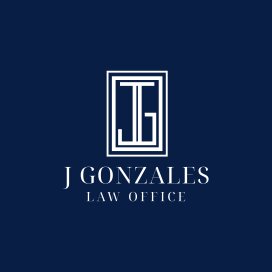Best Fintech Lawyers in Manila
Share your needs with us, get contacted by law firms.
Free. Takes 2 min.
List of the best lawyers in Manila, Philippines
About Fintech Law in Manila, Philippines:
Fintech, short for financial technology, refers to the use of technology to deliver financial services. In Manila, Philippines, the Fintech industry has been rapidly growing with the aim to revolutionize banking, payments, lending, insurance, and other financial services. The government of the Philippines has recognized the importance of Fintech and has taken steps to create a regulatory framework that fosters innovation and protects the interests of consumers.
Why You May Need a Lawyer:
While Fintech offers many opportunities, there are legal complexities that individuals and businesses operating in this field may encounter. Having a lawyer specialized in Fintech can help ensure compliance with relevant laws and regulations, protect intellectual property rights, assist in negotiating contracts, resolve legal disputes, and provide guidance on data privacy and security.
Local Laws Overview:
In Manila, Philippines, the main legal framework for Fintech is regulated by the Bangko Sentral ng Pilipinas (BSP), the country's central bank. The BSP has established rules and regulations to govern various aspects of Fintech, including electronic payments, digital currencies, crowdfunding, and peer-to-peer lending. It is important to understand and comply with these regulations to operate legally and avoid potential penalties or legal issues.
Frequently Asked Questions:
1. Is it legal to operate a cryptocurrency exchange in Manila?
Yes, cryptocurrency exchanges can operate legally in Manila, but they must be registered with the Bangko Sentral ng Pilipinas as Virtual Currency Exchange Service Providers. Compliance with anti-money laundering and counter-terrorism financing regulations is also required.
2. Are there any limitations on peer-to-peer lending platforms in Manila?
Peer-to-peer lending platforms are allowed in Manila, but they must be registered with the Securities and Exchange Commission. There are certain limitations on the amount that can be borrowed or lent, and strict disclosure requirements must be followed.
3. What steps should I take to ensure data privacy and security in my Fintech business?
To ensure data privacy and security in your Fintech business, it is important to comply with the Data Privacy Act of 2012. This includes implementing security measures to protect personal data, obtaining consent from individuals for data processing, and adhering to data breach notification requirements.
4. What are the regulations around mobile payments in Manila?
Mobile payments are regulated by the Bangko Sentral ng Pilipinas. Service providers must obtain the necessary license and comply with specific requirements, such as electronic money issuers maintaining a certain level of capital and safeguarding customer funds.
5. Are there regulations for crowdfunding platforms in Manila?
Yes, crowdfunding platforms are regulated by the Securities and Exchange Commission. They must be registered and comply with disclosure requirements, investment limits, and client suitability assessments.
Additional Resources:
- Bangko Sentral ng Pilipinas (BSP): www.bsp.gov.ph - Securities and Exchange Commission (SEC): www.sec.gov.ph - Fintech Philippines Association: www.fintechph.org
Next Steps:
If you require legal assistance in the field of Fintech in Manila, it is recommended to consult with a lawyer specializing in Fintech law. They can guide you through the legal requirements, help you understand the relevant regulations, and ensure compliance with local laws. Be sure to provide them with all necessary information regarding your Fintech business or venture to receive tailored advice and support.
Lawzana helps you find the best lawyers and law firms in Manila through a curated and pre-screened list of qualified legal professionals. Our platform offers rankings and detailed profiles of attorneys and law firms, allowing you to compare based on practice areas, including Fintech, experience, and client feedback.
Each profile includes a description of the firm's areas of practice, client reviews, team members and partners, year of establishment, spoken languages, office locations, contact information, social media presence, and any published articles or resources. Most firms on our platform speak English and are experienced in both local and international legal matters.
Get a quote from top-rated law firms in Manila, Philippines — quickly, securely, and without unnecessary hassle.
Disclaimer:
The information provided on this page is for general informational purposes only and does not constitute legal advice. While we strive to ensure the accuracy and relevance of the content, legal information may change over time, and interpretations of the law can vary. You should always consult with a qualified legal professional for advice specific to your situation.
We disclaim all liability for actions taken or not taken based on the content of this page. If you believe any information is incorrect or outdated, please contact us, and we will review and update it where appropriate.









